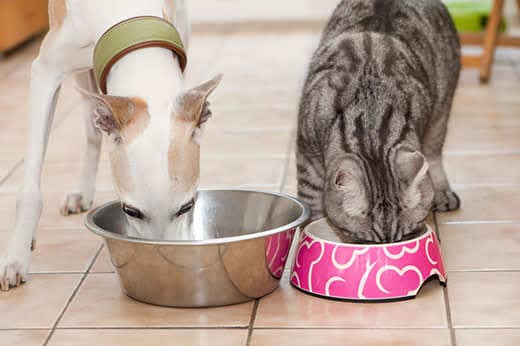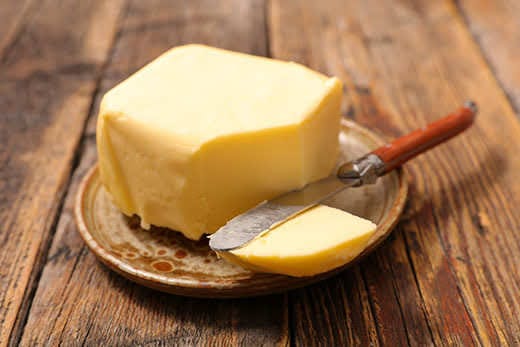
-
Find the right food for your pet
Take this quiz to see which food may be the best for your furry friend.
Find the right food for your pet
Take this quiz to see which food may be the best for your furry friend.
Featured products
 Adult 7+ Perfect Digestion Chicken, Whole Oats & Brown Rice Recipe Dog Food
Adult 7+ Perfect Digestion Chicken, Whole Oats & Brown Rice Recipe Dog FoodScience Diet's breakthrough nutrition supports ultimate digestive well-being & healthy microbiome for dogs age 7+
Shop Now Small & Mini Savory Stew with Chicken & Vegetables Dog Food
Small & Mini Savory Stew with Chicken & Vegetables Dog FoodA delicious complement to the nutrition of Science Diet Small & Mini 7+ dog food
Shop Now Adult Healthy Cuisine Roasted Chicken, Carrots & Spinach Stew Dog Food
Adult Healthy Cuisine Roasted Chicken, Carrots & Spinach Stew Dog FoodDelicious roasted chicken paired with tender vegetables in a succulent stew
Shop NowFeatured products
 Adult Savory Entrée Can Variety Pack Cat Food
Adult Savory Entrée Can Variety Pack Cat FoodPrecisely balanced nutrition with the delicious taste of savory minced chicken to help fuel the energy needs of cats during the prime of their life
Shop Now Adult 7+ Senior Vitality Chicken & Vegetable Stew Cat Food
Adult 7+ Senior Vitality Chicken & Vegetable Stew Cat FoodImproves Everyday Ability to Get Up & Go
Shop Now Adult 7+ Tender Tuna Dinner Cat Food
Adult 7+ Tender Tuna Dinner Cat FoodWith delicious chunks in a decadent gravy
Shop Now -
Dog
- Dog Tips & Articles
-
Health Category
- Weight
- Food & Environmental Sensitivities
- Urinary
- Digestive
- Joint
- Kidney
-
Life Stage
- Puppy Nutrition
- Adult Nutrition
- Senior Nutrition
Cat
- Cat Tips & Articles
-
Health Category
- Weight
- Skin & Food Sensitivities
- Urinary
- Digestive
- Kidney
-
Life Stage
- Kitten Nutrition
- Adult Nutrition
Featured articles
 Does My Pet Hate Me?
Does My Pet Hate Me?Learn tips for bonding with your pet if you've ever thought, 'My dog doesn't like me, or 'Why do I have a standoffish cat?'
Read More Why Are Dogs and Cats So Cute?
Why Are Dogs and Cats So Cute?If waggy puppy dog tails and furry kitten yawns make you swoon, you're not alone. Why are cats so cute? And, dogs too! Let's find out!
Read More Do Dogs and Cats have Belly Buttons?
Do Dogs and Cats have Belly Buttons?Learn whether cats & dogs have belly buttons like humans, what the function is, and if there are any health concerns associated with it.
Read More -


As you and your furry buddy snuggle into the couch for an evening movie marathon, you reach for a handful of buttery popcorn. Your cat or dog gives you those irresistible big doe eyes, innocently begging for a taste.
Is it okay to share? Is butter bad for your dog or cat? Let's get the lowdown on this popular condiment.
Is Butter Bad for Your Pet?
While butter isn't toxic to pets, it can cause issues including mild vomiting or diarrhea, according to the Pet Poison Helpline (PPH). This is true of all fatty foods, including oils and grease. The PPH explains that if pets eat butter specifically, they may experience gastroenteritis, an inflammation of the lining of the intestines, or pancreatitis which is inflammation of the pancreas. Pancreatitis is important because it can be life threatening.
Some dog breeds (like miniature schnauzers) are more likely to develop pancreatitis than others, so it's a good idea to give your veterinarian a call if you know your pet has gobbled down a stick of butter or a plate of greasy table scraps. They can advise, based on your pet's breed and weight, whether or not you need professional assistance.
Bottom line: no, your pet shouldn't eat butter or any greasy foods, including margarine or butter substitutes made with oils. Instead, when you're having a snack, offer your pet a treat specifically made with their nutrition and body systems in mind. That's what cat treats and dog treats are for!



Tasty Tips
Young pets may need several visits in their first year for vaccinations. Adult pets generally benefit from annual check-ups, while senior or special-needs pets might require more frequent visits.
What to Do If Your Pet Eats Butter
But what if your sneaky pet is already licking their lips? What if your cat finished off the butter dish or your dog got a mouthful of movie-style popcorn when you were taking a restroom break? It's not good for them, but again, butter isn't toxic. This means you don't need to rush to the emergency vet clinic unless they consume large amounts of butter.
Instead, call when the clinic is open to give the vet a heads-up on the situation. In the meantime, monitor your pet. If you notice any of the following clinical signs, contact your vet as soon as possible:
- Abdominal pain or tenderness
- Diarrhea (with or without blood in the stool)
- Lethargic demeanor
- Reduced appetite
- Vomiting (may occur one to four days after eating the fat rich food)
To prevent your cat or dog from eating butter, keep it out of their reach. For cat lovers, this means being mindful of what you leave on kitchen countertops, dining room tables, bedside stands and any other surface your cat is allowed to explore. For families with dogs, be extra aware of what lingers on the coffee table or what foods the kids eat while sitting on the floor. Put away leftovers and unfinished plates right away to keep curious pets from eating something they shouldn't, like butter.
So, is butter bad for dogs? Is butter bad for cats? Yes, on both fronts. We all love sharing our food with our pets, but buttery bites are not a good choice. If you can't imagine not sharing something from your plate, stick with unsweetened fresh fruit or unseasoned veggies, like carrots, apple slices or unbuttered green beans with consent from your veterinarian. Or, place a couple of your cat or dog's favorite snacks next your plate to make them think you're both eating the same tasty treats. Here's to healthy snacking with your four-legged companion!


Angela Tague is a pet mom and writer living in the Midwest. When she's not making a mess in the kitchen, exploring nature trails with her dog, or attending a yoga workshop, she's writing full-time for multiple lifestyle and technology brands. You can find her on Twitter and LinkedIn @AngelaTague.
Related products

Improves Everyday Ability to Get Up & Go

Precisely balanced nutrition with the delicious taste of savory minced chicken to help fuel the energy needs of cats during the prime of their life

With delicious chunks in a decadent gravy

Supports energy level and beautiful fur in mature cats
Related articles

Learn whether cats & dogs have belly buttons like humans, what the function is, and if there are any health concerns associated with it.

If waggy puppy dog tails and furry kitten yawns make you swoon, you're not alone. Why are cats so cute? And, dogs too! Let's find out!

Discover how your pets might be impacted by the loss of another. Learn how to recognize their signs of grieving & how to help them cope with their loss.

Learn tips for bonding with your pet if you've ever thought, 'My dog doesn't like me, or 'Why do I have a standoffish cat?'

Put your pet on a diet without them knowing
Our low calorie formula helps you control your pet's weight. It's packed with high-quality protein for building lean muscles, and made with purposeful ingredients for a flavorful, nutritious meal. Clinically proven antioxidants, Vitamin C+E, help promote a healthy immune system.
Put your pet on a diet without them knowing
Our low calorie formula helps you control your pet's weight. It's packed with high-quality protein for building lean muscles, and made with purposeful ingredients for a flavorful, nutritious meal. Clinically proven antioxidants, Vitamin C+E, help promote a healthy immune system.


